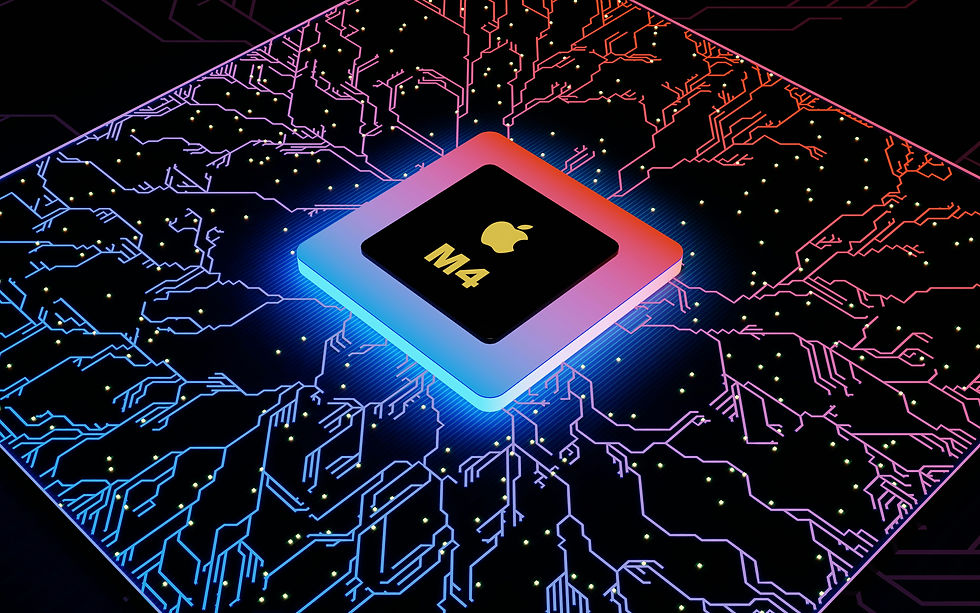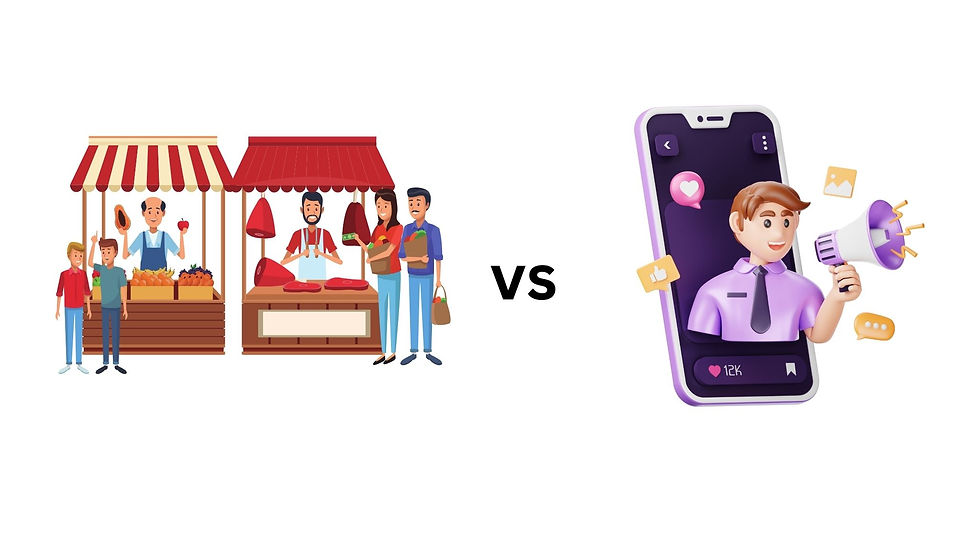Why Adapting to AI is Your Greatest Competitive Advantage
- Juneffer Binti Sabastian Goh
- May 31, 2025
- 3 min read
"From efficiency gains to innovation breakthroughs, AI is revolutionizing businesses across industries." - PhenomᵉCloud,Apr 08, 2025

History whispers a consistent truth: transformative technologies face fierce resistance before becoming indispensable. When fire illuminated caves, skeptics warned of burns. When Gutenberg's press emerged in 1440, scribes feared obsolescence.
Today, as artificial intelligence reshapes reality, we stand at another inflection point where adaptation isn't optional—it's existential. McKinsey confirms this urgency: 56% of global businesses already deploy AI in core operations, and AI is projected to add $15.7 trillion to the global economy by 2030. This won't materialize through passive observation—it demands active engagement.

Contrary to dystopian fantasies, AI isn't lurking in our future—it's embedded in our present. Manufacturers use AI-driven predictive maintenance, slashing equipment downtime by 30%. Retailers leverage automated inventory systems, reducing stockouts by 20% while boosting sales. Financial institutions deploy fraud-detection algorithms analyzing real-time data at superhuman scales, while healthcare AI diagnostics now outperform radiologists in spotting cancers.
This isn't about replacement; it's about augmentation. Tools like SAP's Joule AI handle routine tasks, freeing humans for complex problem-solving—a dynamic Deloitte finds gives 65% of professionals a competitive edge.

The fear of mass job loss obscures a more nuanced reality. While automation may displace 63 million jobs in APAC by 2040, AI will create 97 million new roles by 2025 in fields like AI ethics and data analytics. The future belongs to the augmented workforce, where human creativity merges with AI's data-crushing power.
Imagine marketers using AI for real-time consumer analysis while crafting emotionally resonant campaigns or engineers collaborating with AI to simulate sustainable city designs. This synergy explains why AI-exposed industries offer 11% higher salaries for AI-literate professionals.
Yet true competitive advantage emerges not from mere adoption but adaptation—customizing AI to your unique business DNA. J.P. Morgan's OmniAI platform thrived by training finance experts to interpret AI insights, not just deploy tools. Energy companies using AI for asset management achieved 25% cost reductions.
However, over half of AI initiatives stall due to poor data quality or ethics gaps. Success requires cultural reskilling, ethical guardrails against bias, and generative integration—using AI to create new value streams like hyper-personalized customer journeys.
The cost of inaction is catastrophic. Competitors automating processes achieve 30-50% faster turnarounds with fewer errors. As one executive notes, "AI doesn't need coffee breaks." Meanwhile, 90% of employers plan AI implementation by 2028, and top talent flocks to organizations offering AI-enhanced workflows—businesses leveraging AI for R&D, like pharma firms accelerating drug discovery, out-innovate peers by 40%.

Your adaptation roadmap starts with auditing tasks where AI can reclaim >30% of employee time, like data entry or report generation. Launch micro-pilots in low-risk areas like HR screening before scaling enterprise-wide. Build cross-functional teams blending IT, operations, and ethics experts to tailor solutions. Prioritize transparency using explainable AI models and invest in human-centric upskilling through programs like DataCamp or LearnQuest.
The future belongs not to those who merely adopt AI but those who adapt with intention. Just as the printing press expanded knowledge access, not just replaced scribes, AI will amplify human potential. It's our bridge to solving humanity's most significant challenges, from personalized medicine to sustainable cities. The question isn't whether you'll encounter AI; it's whether you'll harness it—or become a footnote in its evolution.
Reference:
Cogent Infotech. (2024, January 30). Adapting to the AI revolution: Understanding the integration of artificial intelligence in the workforce 2. https://www.cogentinfo.com/resources/adapting-to-the-ai-revolution-understanding-the-integration-of-artificial-intelligence-in-the-workforce
Joyce, J. (2023, December 7). Adapting to AI: Thriving in a tech-driven world 4. Bradwell. https://brandwell.ai/blog/adapting-to-ai/
McKinsey Global Institute. (2023). The economic potential of generative AI: The next productivity frontier 26.
Pew Research Center. (2018, December 10). Improvements ahead: How humans and AI might evolve together in the next decade 10. https://www.pewresearch.org/internet/2018/12/10/improvements-ahead-how-humans-and-ai-might-evolve-together-in-the-next-decade/
Rapid Innovation. (2024). From AI adoption to AI adaptation: Why the shift matters 11. LinkedIn. https://www.linkedin.com/pulse/from-ai-adoption-adaptation-why-shift-matters-qlh5e
Salokannel, P. (n.d.). The impact of AI: How artificial intelligence is transforming society 7. 3DBear. https://www.3dbear.io/blog/the-impact-of-ai-how-artificial-intelligence-is-transforming-society
Urwin, M. (2025, January 28). The future of AI: How artificial intelligence will change the world 6. Built-In. https://builtin.com/artificial-intelligence/artificial-intelligence-future
West, D., & Allen, J. (2018, April 24). How artificial intelligence is transforming the world 5. Brookings Institution. https://www.brookings.edu/articles/how-artificial-intelligence-is-transforming-the-world/
White House. (2023). Economic analysis of AI and workforce transformation 2.
World Economic Forum. (2023). Future of jobs report 2023



Comments